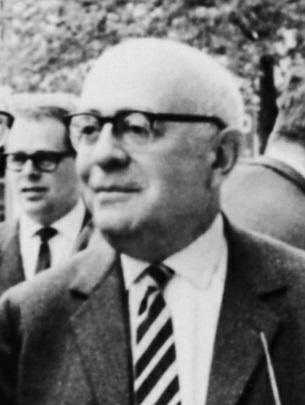As quoted in The Dialectical Imagination : A History of the Frankfurt School and the Institute of Social Research (1973) by M Jay, p. 279.
Theodor W. Adorno Quotes
Zartheit zwischen Menschen ist nichts anderes als das Bewußtsein von der Möglichkeit zweckfreier Beziehungen.
E. Jephcott, trans. (1974), § 20
Minima Moralia (1951)
“Freudian Theory and the Pattern of Fascist Propaganda,” The Essential Frankfurt School Reader (1982), p. 123
Source: Jargon der Eigentlichkeit [Jargon of Authenticity] (1964), p. 7
Source: Wozu noch Philosophie? [Why still philosophy?] (1963), p. 9
Der Bürger aber ist tolerant. Seine Liebe zu den Leuten, wie sie sind, entspringt dem Haß gegen den richtigen Menschen.
E. Jephcott, trans. (1974), § 4
Minima Moralia (1951)
Der vage Ausdruck erlaubt dem, der ihn vernimmt, das ungefähr sich vorzustellen, was ihm genehm ist und was er ohnehin meint. Der strenge erzwingt Eindeutigkeit der Auffassung, die Anstrengung des Begriffs, deren die Menschen bewußt entwöhnt werden, und mutet ihnen vor allem Inhalt Suspension der gängigen Urteile, damit ein sich Absondern zu, dem sie heftig widerstreben. Nur, was sie nicht erst zu verstehen brauchen, gilt ihnen für verständlich; nur das in Wahrheit Entfremdete, das vom Kommerz geprägte Wort berührt sie als vertraut.
E. Jephcott, trans. (1974), § 64
Minima Moralia (1951)
Source: Wozu noch Philosophie? [Why still philosophy?] (1963), p. 7
Die traurige Wissenschaft, aus der ich meinem Freunde einiges darbiete, bezieht sich auf einen Bereich, der für undenkliche Zeiten als der eigentliche der Philosophie galt, seit deren Verwandlung in Methode aber der intellektuellen Nichtachtung, der sententiösen Willkür und am Ende der Vergessenheit verfiel: die Lehre vom richtigen Leben. Was einmal den Philosophen Leben hieß, ist zur Sphäre des Privaten und dann bloß noch des Konsums geworden, die als Anhang des materiellen Produktionsprozesses, ohne Autonomie und ohne eigene Substanz, mit geschleift wird.
E. Jephcott, trans. (1974), Dedication
Minima Moralia (1951)
“Both are torn halves of an integral freedom, to which however they do not add up.”
On high culture and popular culture, in a letter http://www.scribd.com/doc/11510904/Adorno-Letters-to-Walter-Benjamin to Walter Benjamin (18 March 1936)
Source: On the Fetish Character in Music and the Regression of Listening (1938), p. 286
Source: Jargon der Eigentlichkeit [Jargon of Authenticity] (1964), pp. 5-6
Das Zentrum der geistigen Selbstdisziplin als solcher ist in Zersetzung begriffen. Die Tabus, die den geistigen Rang eines Menschen ausmachen, oftmals sedimentierte Erfahrungen und unartikulierte Erkenntnisse, richten sich stets gegen eigene Regungen, die er verdammen lernte, die aber so stark sind, daß nur eine fraglose und unbefragte Instanz ihnen Einhalt gebieten kann. Was fürs Triebleben gilt, gilt fürs geistige nicht minder: der Maler und Komponist, der diese und jene Farbenzusammenstellung oder Akkordverbindung als kitschig sich untersagt, der Schriftsteller, dem sprachliche Konfigurationen als banal oder pedantisch auf die Nerven gehen, reagiert so heftig gegen sie, weil in ihm selber Schichten sind, die es dorthin lockt. Die Absage ans herrschende Unwesen der Kultur setzt voraus, daß man an diesem selber genug teilhat, um es gleichsam in den eigenen Fingern zucken zu fühlen, daß man aber zugleich aus dieser Teilhabe Kräfte zog, sie zu kündigen. Diese Kräfte, die als solche des individuellen Widerstands in Erscheinung treten, sind darum doch keineswegs selber bloß individueller Art. Das intellektuelle Gewissen, in dem sie sich zusammenfassen, hat ein gesellschaftliches Moment so gut wie das moralische Überich. Es bildet sich an einer Vorstellung von der richtigen Gesellschaft und deren Bürgern. Läßt einmal diese Vorstellung nach—und wer könnte noch blind vertrauend ihr sich überlassen—, so verliert der intellektuelle Drang nach unten seine Hemmung, und aller Unrat, den die barbarische Kultur im Individuum zurückgelassen hat, Halbbildung, sich Gehenlassen, plumpe Vertraulichkeit, Ungeschliffenheit, kommt zum Vorschein. Meist rationalisiert es sich auch noch als Humanität, als den Willen, anderen Menschen sich verständlich zu machen, als welterfahrene Verantwortlichkeit. Aber das Opfer der intellektuellen Selbstdisziplin fällt dem, der es auf sich nimmt, viel zu leicht, als daß man ihm glauben dürfte, daß es eines ist.
E. Jephcott, trans. (1974), § 8
Minima Moralia (1951)
John Cumming trans., p. 7
Dialektik der Aufklärung [Dialectic of Enlightenment] (1944)
Source: Lectures on Negative Dialectics (1965-66), pp. 19-20
Source: Jargon der Eigentlichkeit [Jargon of Authenticity] (1964), p. 6
E. Jephcott, trans., p. 9
Dialektik der Aufklärung [Dialectic of Enlightenment] (1944)
“All the world's not a stage.”
E. Jephcott, trans. (1974), § 94
Minima Moralia (1951)
E. Jephcott, trans., p. 17
Dialektik der Aufklärung [Dialectic of Enlightenment] (1944)
